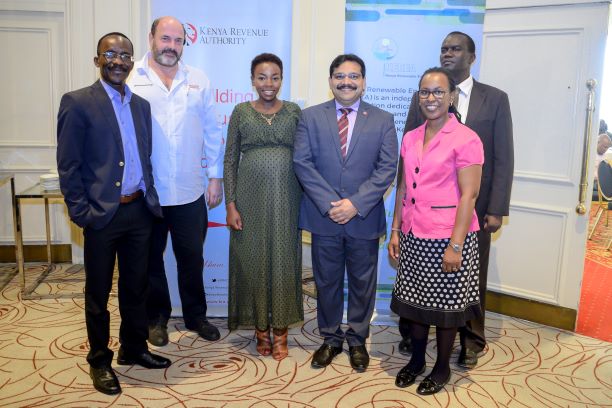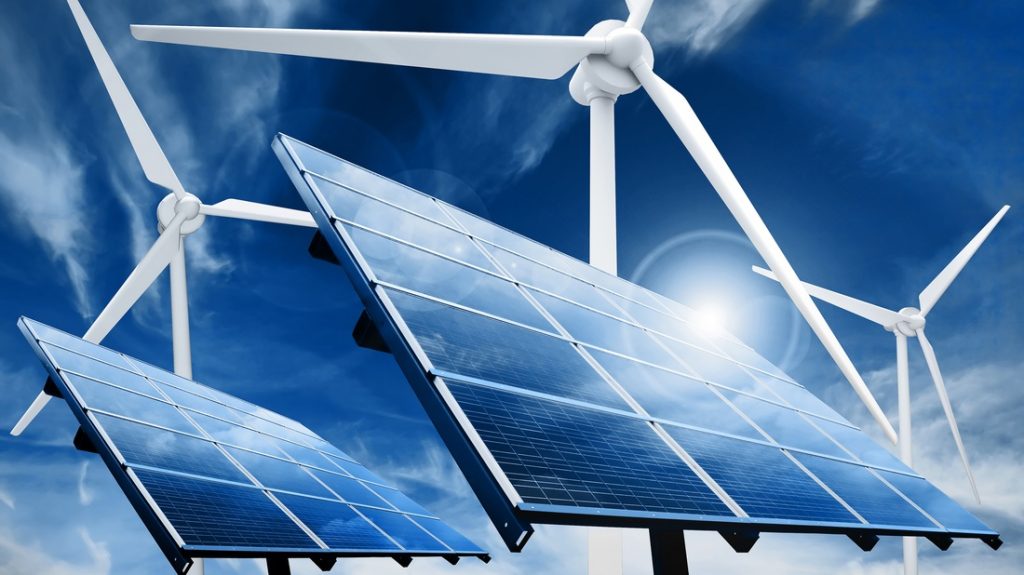KEREA – KRA MEETING HELD AT HILTON HOTEL ON 19TH FEBRUARY 2019

- February 19 - March 19, 2019
- 10:00 am to 1:00 pm
- HILTON HOTEL
- 0728535873
REPORT FOR THE KENYA RENEWABLE ENERGY ASSOCIATION AND KENYA
REVENUE AUTHORITY MEETING HELD ON 19TH FEBRUARY AT HILTON HOTEL.
Programme of the Day
1. Arrival and Registration of Participants
2. Introduction of KEREA and KRA representatives
3. Key Opening Remarks and Regulatory background of the Kenya Renewable Energy Industry Tax
Advocacy
4. Solar Tax Issues Presentation
5. The Way Forward for the Renewable Energy Sector from KRA representatives and ERC.
6. Solar Water Heating Presentation
7. Question and Answer Session
8. Closing Remarks
1. Arrival and Registration of Participants
Members and the KRA representatives started arriving at 9:30am. Registration was done at the entrance
of the Ivory meeting room by the KEREA ushers. There was a total of 47 members at the meeting.
2. Introduction of KEREA and KRA representatives
The meeting was started at 10:10am by Shaleen Wangui, who began by welcoming all the guests to the
meeting and informing the participants of the purpose of the meeting.
Mr. David Jesse led introductions of both KEREA and KRA representatives.
3. Key Opening Remarks and Regulatory background of the Kenya Renewable Energy Industry Tax Advocacy
Mr. Kamal led this session, he commented about the importance of the meeting to the sector. He added
that the private sector was willing to work together with KRA to make the renewable energy sector
favorable in terms of trade facilitation.
4. Solar Tax Issues Presentation
Mr Andreas. led this session by giving a presentation on the Solar Water Heating equipment. The
pictorial presentation comprised of the items in a Solar Water Heating system and the role of each item
for the whole system to work.
Pauline Githugu led the next presentation for the solar items. The presentations were detailing the Tax
Issues, The affected sector, The detailed description of the challenge, the proposed intervention and the
justification. This presentation however shaped the agenda of the meeting.
5. The Way Forward for the Renewable Energy Sector from KRA representatives and ERC.
Mr. John Gathatwa, the Deputy Commissioner Customs, led the session. The tax issues presented were addressed accordingly.
One of the KRA representatives gave a presentation with regard to the changes in the law overtime. He illustrated the exemption provision referring Item 26 of Part B of the 5th Schedule to the East African
Community Customs Management Act 2004, which states that:
‘Specialized equipment for development and generation of solar and wind energy, including deep cycle
batteries which use and /or store solar power.’
He continues to add that the current exemption policy states that:
‘Specialized equipment for development and generation of solar and wind energy” qualifies for
exemption.’
| Tax Issue | KRA Recommendation | KRA representative |
| Application of Exemptions for Solar Home System Kits
|
|
|
| Policy Inconsistency on the application of Duty and VAT on Solar powered lights | Solar lights are allowed exemption when it comes to the country as a complete system | |
| Clarity on interpretation and application of exemptions for consolidate product with integrated appliances under the 2018 finance bill and applicable EAC regulations | ||
| Solar Lanterns | Solar lanterns are VAT and duty exempt | Lorna |
| Solar Batteries | Solar lanterns are VAT and duty exempt | Lorna |
| Solar Inverters | Solar Inverters qualify for duty | Lorna |
| Bureaucracy in the application and granting of VAT/duty exemption to Solar Home systems that qualify according to the VAT Act
Delays at Ports of Entry |
They are working on it |
| Tax Issue | KRA Recommendation | KRA representative |
| Application of duty and VAT on importation of Solar Water Heating Systems with Heating elements
|
In case of any advances, KRA will be shy to exempt. Systems should be presented in specific form. | Lorna |
| Tariff codes used for importation of SWH systems is 8419190000, is utilized all over world. KRA requiring use of Tariff Code 851610000 for Solar Water Heating Systems | Tarriff classification is allocated depending on what is presented | |
| EAC CET Review EAC Policy continues to establish applicable duties for imports. CET review process is ongoing and status of solar products needs to be secured. | Submit proposals at the EAC level | Lorna |
6. Solar Water Heating Presentation
Mr Andreas led this session, he gave recommendation on the Solar Water Heating items. He specified
the recommended HS codes for specific items in the system. Find attached a document explaining
further.
One of the KRA representatives interjected indicating that one HS Code could not be allocated to a
specific item.
7. Question and Answer Session
Davies Akeno – ‘’Operations in other KRA offices such as the South Region Office are not similar to the
KRA office in Nairobi. This has however caused inconsistency.’’
KRA – Communication will be done
Mayank Amin – ‘’Why does Kenya have different HS coding system than other different countries?’’
Nick Sparks – ‘’Where does the clause indicating that USB cable and solar lights are exempt?’’
Moses Dokoria – ‘’Can another company use the same approval from a KRA commissioner used by
another company.’’
KRA – No
Charles Muchunku – ‘’Can the Renewable Energy Industry develop a guideline for the industry to bring
clarity?’’
KRA – ‘’The industry can develop a guideline, but must first come up with something to start from.’’
Lorna will however be the contact person.
8. The Evaluation Index Summary
I) The attendees rated the meeting as follows;
Excellent -18%
Very good- 25%
Good -43%
Fair- 12%
Poor- NIL
II) What the members liked about the meeting;
1. All round inclusivity of the various renewable energy industry stake-holders and KRA teams in the various discussions.
2. Clarification from the KRA officials.
3. Presentations by KRA, the general set-up and the stake-holders who contributed.
4. Consultative
5. Readiness from KEREA.
6. Representation of the association.
7. The question and answer session.
8. Good reception.
9. Illustration from sector players-good charts/drawings that explain unit and components properly.
10. Different products on solar energy.
11. Opportunity to openly interact with KRA.
12. Policy implementation on KRA was well described.
13. Interactive nature of the meeting.
14. Raising the problems e.g Taxation
15. KRA are hopefully open to improvements.
16. Presence of KRA, ERC & KEREA staff and members/ practitioners from 47-County Based
Government in Kenya.
17. Straight forward and structured.
18. Visualization.
III) What some of the members disliked about the meeting.
1. Feedback from KRA was not explicit.
2. Working groups from SWH were digressing.
3. Focused mostly on solar heaters.
4. Ambiguity in the clarifications makes it more confusing on the application of VAT & Duty Free.
Report prepared by Shaleen Wangui
5. There was not a lot of agreement on ways forward. Let us create a definitive component list and
see where it goes.
6. Tough defense from KRA.
7. The case for solar systems could have been better presented.
8. Need to make presentations less technical for non-solar players.
9. Inability if the KRA team attending without decision makers.
IV) Members thought the meeting was very organized.
V) Prior to the meeting, the following is the amount of information that members needed to
know and they got;
Members
13% All of the information
48% Most of the information
26% Some of the information
13% A little information
VI) Members said the meeting length was about right.
VII) The following are improvements that members would like us to make on our next meeting;
1. Time management.
2. Presentation to be balanced not only one type of product.
3. By then to let KRA table solid and elaborate guidelines based on the proposals we make today as
industry players.
4. Get decision makers and the commissioners of KRA present.
5. Isolation of different importers of solar systems.
6. Structured questions sent in advance to KRA.
7. There is need to have more regular meetings so as to close the gap between KRA and the sector
players.
8. More security of attendees’ properties.
9. Maybe have a short “Previous Questions and Provided Answers” re-cap, to show progress from
this meeting.
10. Breakdown of discussions as per products for better clarification.
11. Repeat this forum in major towns in Kenya.
12. Implement sectors to improve targeted messaging.
13. Participants should be advised to use a friendly approach when lobbying for policy
change/amendment.
Report prepared by Shaleen Wangui
Kenya Renewable Energy Association



